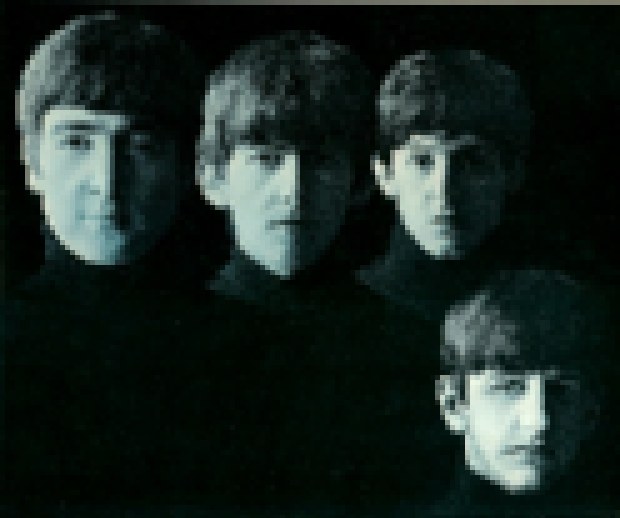
So chances are (though I don’t buy the semaphore thing) that tomorrow will bring an announcement from Apple that they’ve finally reached an agreement with Apple Records, or EMI, or Apple Corps, or somebody, and will now be offering the Beatles catalogue on iTunes. That’s nice, but why should we care?
Being that the Beatles MP3 holdout is emblematic of the recording industry’s resistance against modern distribution methods, the way in which the Beatles discography will be made available should be telling. Here was a situation in which the labels and distributors have millions of sales at stake, and though to be fair Beatles records have been selling just fine without the benefit of legal downloads over the last decade. The powers that be must know that by agreeing to MP3 distribution, they are shifting the fulcrum. But how far?
Details of the deal will likely leak out over the next few weeks; negotiations might have been going on right up until last week, if the WSJ’s source is accurate. I doubt Apple’s announcement tomorrow will go beyond the basic “The world’s favorite band. Now on iTunes.” —with links to albums, some extra material, and so on. They probably had a whole presentation ready to go, high-res artwork and special pages and everything, and have been waiting to pull the trigger for a couple years. Every week this is on the market around the holidays is another week everyone involved gets to print money.

What will fall out? Whom will the terms favor? Who was holding out, really? The balance of power has shifted dramatically, and it’s conceivable that either party might have had the drop on the other. Apple, after all, is happy without the Beatles, being far and away the leader in the market, and may have set its terms years ago and waited for the other guys to come around. Apple Records, however, could easily offer an exclusive to Amazon or the like, or even set up a proprietary “Beatles Store” that would be resented by all but probably very popular. On the whole I think the balance of power lies with the record companies in this case, because the demand is there and iTunes is simply one way of meeting it.
On that note, then, I wonder what sort of conditions have been set? And I wonder where Apple, sensing where accommodation ends and capitulation starts, has drawn the line? For instance, I doubt that they would agree to any limitations like those Pink Floyd attempted to place on their discography. But Apple also couldn’t be too picky about exclusivity, I’m guessing, since in the end this digital rollout of the Beatles will be a global affair, Apple has a seat at the table but not at the head of the table.
So why do we care? Because this is one of the last times you’re going to see the recording industry in a position of power. It’s like seeing a majestic Dodo in action for one last time. The obstinacy that has led to doing things the same way since the 50s (there are likely LPs that have been in print that long, being sold the same way, like produce) at last is running out of steam.
The last barriers between old and new distribution are beginning to be dissolved, and the staunchest objectors (in this case, those in charge of the Beatles discography) are being forced to act. So while there will be dissections of the deal done by industry lawyers, agents, and musicians, any advantages gained now will be eroded over time; the distribution power struggle is forcing out obstructionists and inefficiencies, and how far that will go, nobody knows.
This is all, of course, assuming this announcement does happen tomorrow as expected. If not, sorry to have wasted your time. I’ll repost it in a year when it actually happens.